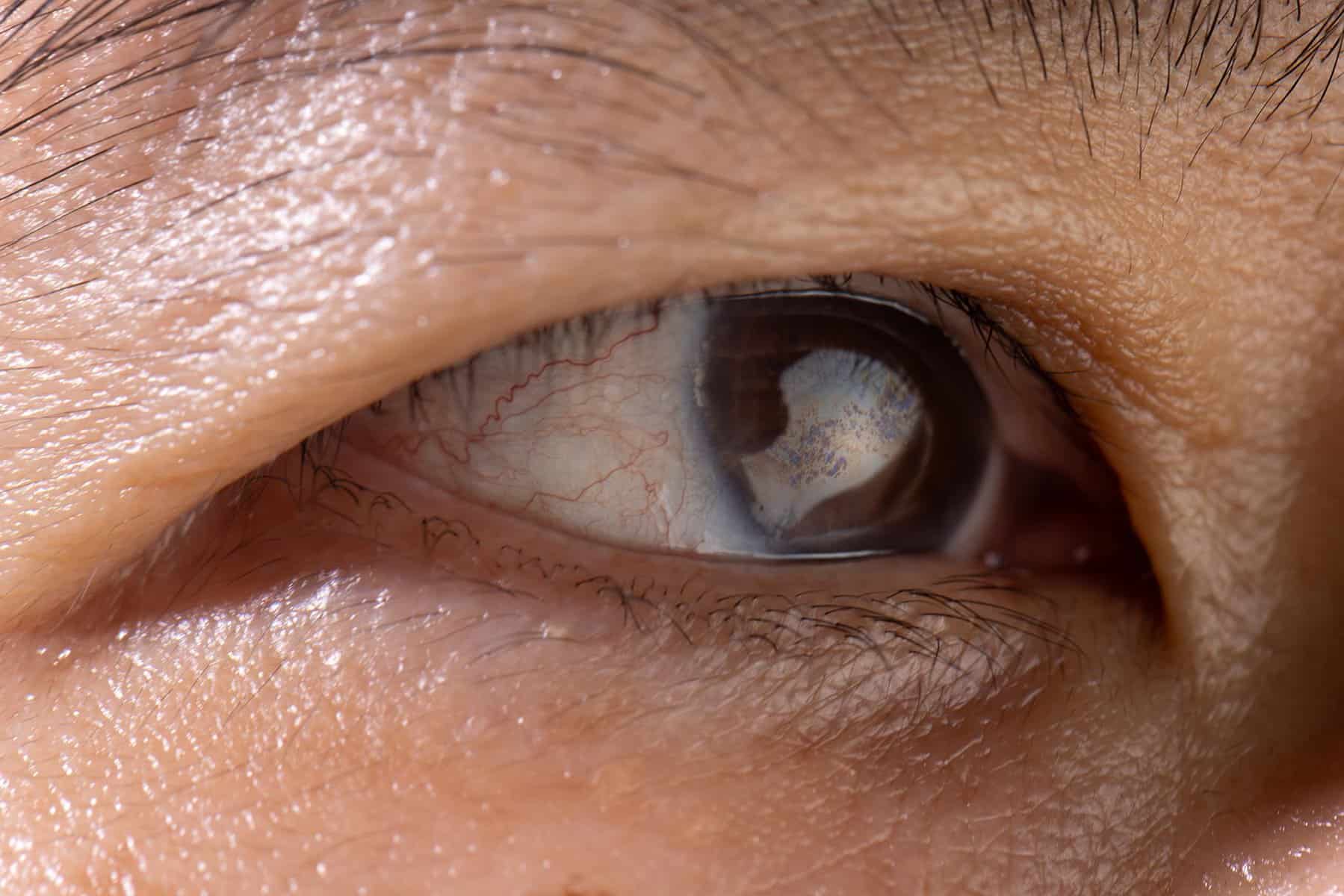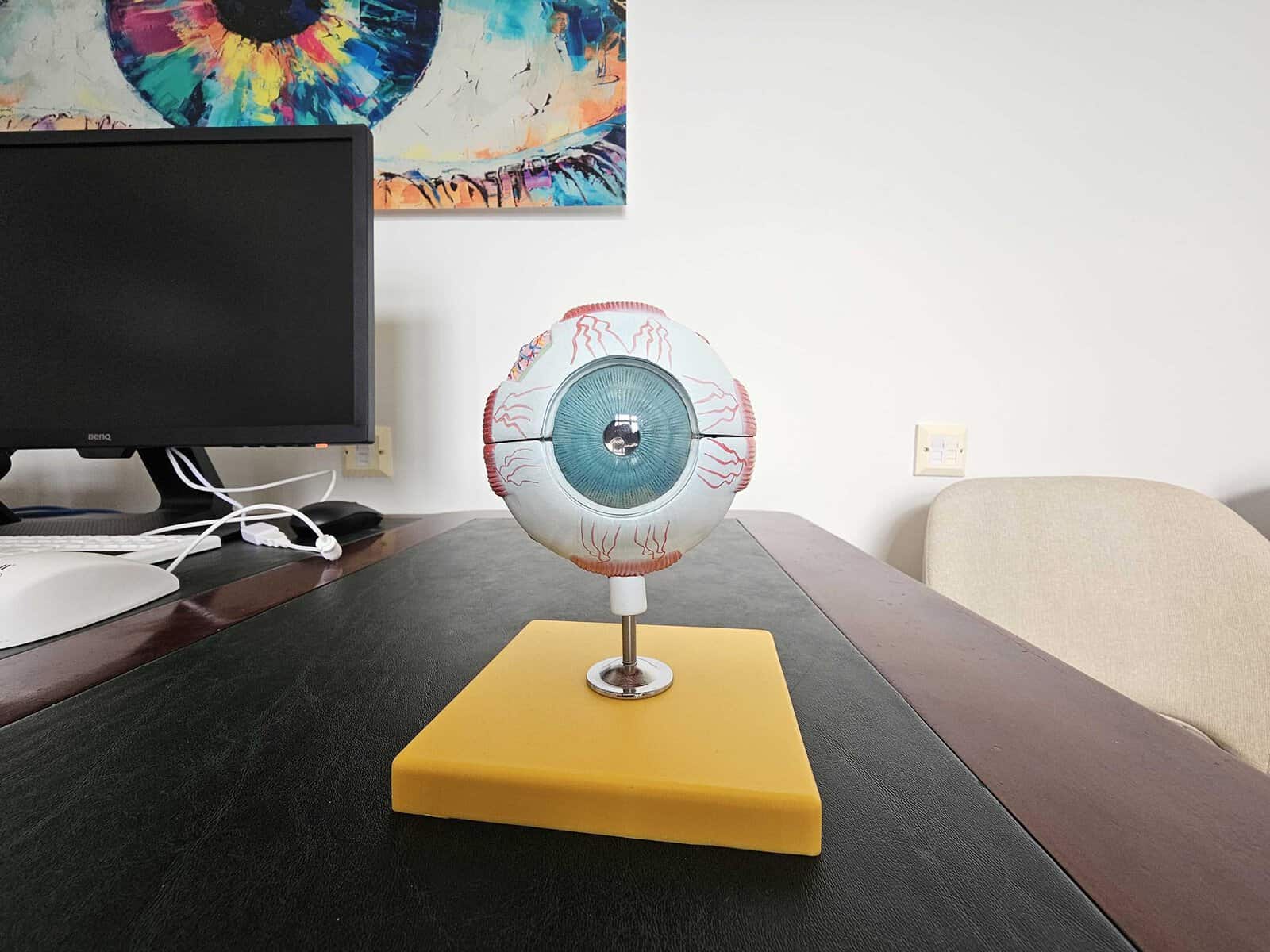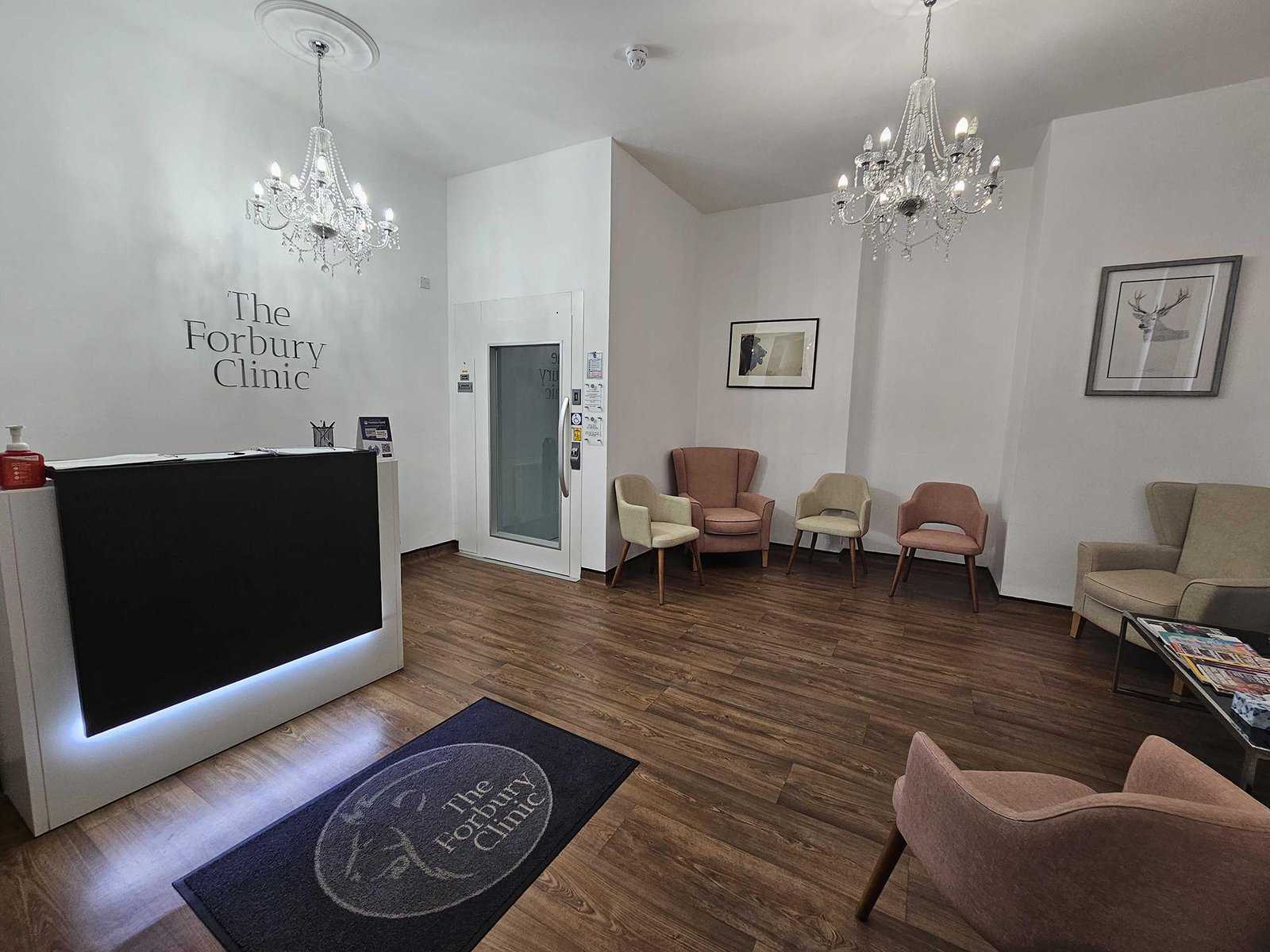Age-Related Macular Degeneration
Protect your vision with expert care for Age-Related Macular Degeneration at The Forbury Clinic. Submit an enquiry for a consultation and explore our advanced treatment options.

Overview
Age-Related Macular Degeneration (AMD) is a common eye condition that affects the central part of the retina, leading to vision loss in older adults. Early diagnosis and treatment are crucial to slow the progression of AMD and preserve vision. At The Forbury Clinic, we specialise in diagnosing and treating AMD with personalised care and advanced techniques. Contact us today to learn more and schedule a consultation.


What is Age-Related Macular Degeneration?
Age-Related Macular Degeneration (AMD) is a degenerative eye disease that affects the macula, the central part of the retina responsible for sharp, central vision. AMD is a leading cause of vision loss in individuals over the age of 50. There are two main types of AMD: dry and wet. Dry AMD is characterised by the thinning of the macula and the presence of drusen (yellow deposits), while wet AMD involves the growth of abnormal blood vessels under the retina, leading to bleeding and fluid leakage. Common symptoms of AMD include blurred or distorted central vision, difficulty reading or recognising faces, and the need for brighter light when doing close work.
Causes and Risk Factors
AMD can be caused by various factors, and certain conditions increase the risk:
Age:
The risk of developing AMD increases with age, particularly in individuals over 50.
Genetics:
A family history of AMD can increase the likelihood of developing the condition.
Smoking:
Smoking doubles the risk of AMD.
Diet and Nutrition:
Poor diet lacking in fruits and vegetables, particularly those high in antioxidants, can contribute to AMD.
Obesity:
Being overweight is associated with a higher risk of AMD.
Exposure to Sunlight:
Prolonged exposure to UV rays may increase the risk.
Understanding these causes and risk factors helps in the early diagnosis and effective management of AMD, improving patient outcomes.
Diagnosis
Diagnosing AMD involves a thorough evaluation at The Forbury Clinic. The diagnostic process includes:
- Initial Consultation: Discussing symptoms, medical history, and potential risk factors with a specialist.
- Visual Acuity Test: Assessing the clarity of your central vision.
- Dilated Eye Exam: Using drops to dilate the pupils and examine the retina and macula for signs of AMD.
- Amsler Grid Test: Checking for visual distortions or blank spots.
- Optical Coherence Tomography (OCT): Imaging the retina to detect areas of thinning or abnormal blood vessels.
These steps ensure a thorough and accurate diagnosis, aiding in the development of an effective treatment plan.

Treatment Options
Based on the diagnosis, various treatment options for AMD may be considered:
- Non-Surgical Options
- Medications
- Innovative Treatments
Lifestyle Changes:
Encouraging a diet rich in leafy greens, fish, and antioxidant supplements to support eye health.
Smoking Cessation:
Advising patients to quit smoking to reduce the risk of AMD progression.
Regular Exercise:
Promoting physical activity to improve overall health and blood flow to the eyes.
Vision Aids:
Providing magnifying glasses and other low vision aids to assist with daily activities.
AREDS Supplements:
Recommending a specific formula of vitamins and minerals (AREDS2) to slow the progression of dry AMD.
Laser Therapy:
Using laser technology to target and destroy abnormal blood vessels in the retina.
Photodynamic Therapy (PDT):
Combining a light-activated drug with laser treatment to close off abnormal blood vessels in wet AMD.
Dry ARMD – Valeda Photobiomodulation Light Therapy
Valeda Photobiomodulation Therapy is an innovative, non-invasive treatment designed to improve retinal health.We use the latest Valeda technology to deliver safe, non-invasive therapy that targets early stage Dry AMD effectively.
At The Forbury Clinic, our multidisciplinary team ensures that each patient receives the most appropriate and effective treatment, tailored to their specific needs and health goals.
Managing Age-Related Macular Degeneration
Managing AMD involves a combination of medical treatments and lifestyle adjustments to control symptoms and improve overall quality of life. At The Forbury Clinic, we provide comprehensive care and guidance to help manage AMD:
Healthy Diet:
Encouraging a diet rich in fruits, vegetables, and omega-3 fatty acids.
Regular Eye Exams:
Scheduling frequent check-ups to monitor the progression of AMD.
Protecting Eyes from UV Light:
Wearing sunglasses with UV protection.
Avoiding Smoking:
Refraining from smoking to reduce the risk of AMD progression.
Using Vision Aids:
Utilising magnifying glasses, special lenses, and electronic reading aids to assist with daily tasks.
These management strategies aim to complement medical treatments and provide a holistic approach to preserving vision and overall well-being.
Complications and Prognosis
While many cases of AMD progress slowly, it is important to be aware of potential complications and the prognosis:
Complications:
- Severe Vision Loss: Advanced AMD can lead to significant central vision loss.
- Inability to Perform Daily Activities: Vision impairment can impact reading, driving, and recognising faces.
- Emotional Impact: Vision loss can lead to depression and anxiety.
Prognosis:
The prognosis for patients with AMD varies depending on the type and stage of the disease. Early detection and appropriate treatment can slow the progression of the disease and preserve vision. Regular follow-ups and ongoing management are crucial to prevent complications and ensure optimal eye health.


Why Choose The Forbury Clinic?
Choosing The Forbury Clinic for your AMD treatment ensures you receive exceptional care from a team of experienced specialists. Our clinic is renowned for its expert medical staff who are dedicated to diagnosing and treating eye conditions with precision and compassion. We use state-of-the-art diagnostic tools and the latest medical advancements to provide accurate diagnoses and innovative treatments tailored to your specific needs. Our patient-centered approach prioritises your comfort, privacy, and overall well-being, offering comprehensive support throughout your treatment journey. At The Forbury Clinic, you can trust that you are in capable hands, with a dedicated team committed to helping you achieve optimal eye health and a better quality of life.
